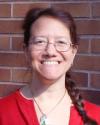Course description
This course covers algorithms for associating deep or elaborated linguistic structures with naturally occurring data, covering parsing, semantics, and discourse.
Textbook
The course textbook is Speech and Language Processing: An Introduction to Natural Language Processing, Computational Linguistics, and Speech Recognition, 2nd edition, by Daniel Jurafsky and James Martin. A partial electronic draft of the 3rd edition is available from https://web.stanford.edu/~jurafsky/slp3/
Prerequisites:
- CSE 373 (Data Structures) or equivalent
- Math/Stat 394 (Intro to Probability) or equivalent
- Formal grammars, languages, and automata
- Programming in one or more of Java, Python, C/C++, or Perl
- Linux/Unix commands
Programming languages:
- A number of assignments in this course require the use of NLTK. Since NLTK is a Python toolkit, those assignments must be completed in Python.
- For all other assignments, any of the languages listed in "languages" file in the course dropbox directory can be used.
Grading
- 100%: Homework Assignments
- Up to 2% adjustment for significant in-class or Discussion board participation
Course Policy
This course follows the general Ling570-572 course policies, as discussed here: http://depts.washington.edu/uwcl/clms/course-policy.pdf
Communication
Per the course policy, all communication outside of the classroom should take place on Canvas. You can expect responses from teaching staff within 48 hours, but only during normal business hours, and excluding weekends.
N.B.: while CLMS students have a private Slack channel, I strongly encourage questions concerning course content and assignments to be posted to the Canvas discussion board, for two reasons. (i) Teaching staff will not look at Slack, so misinformation can spread. (ii) Not every student in the course is in the CLMS program, but they deserve to be included in course discussions and likely have many of the same questions.
Religious Accommodation
Washington state law requires that UW develop a policy for accommodation of student absences or significant hardship due to reasons of faith or conscience, or for organized religious activities. The UW’s policy, including more information about how to request an accommodation, is available at Religious Accommodations Policy (https://registrar.washington.edu/staffandfaculty/religious-accommodations-policy/). Accommodations must be requested within the first two weeks of this course using the Religious Accommodations Request form (https://registrar.washington.edu/students/religious-accommodations-request/).
Access and Accommodations
Your experience in this class is important to me. If you have already established accommodations with Disability Resources for Students (DRS), please communicate your approved accommodations to me at your earliest convenience so we can discuss your needs in this course.
If you have not yet established services through DRS, but have a temporary health condition or permanent disability that requires accommodations (conditions include but not limited to; mental health, attention-related, learning, vision, hearing, physical or health impacts), you are welcome to contact DRS at 206-543-8924 or uwdrs@uw.edu or disability.uw.edu. DRS offers resources and coordinates reasonable accommodations for students with disabilities and/or temporary health conditions. Reasonable accommodations are established through an interactive process between you, your instructor(s) and DRS. It is the policy and practice of the University of Washington to create inclusive and accessible learning environments consistent with federal and state law.
Safety
Call SafeCampus at 206-685-7233 anytime – no matter where you work or study – to anonymously discuss safety and well-being concerns for yourself or others. SafeCampus’s team of caring professionals will provide individualized support, while discussing short- and long-term solutions and connecting you with additional resources when requested.
